Denmark
Denmark's Blaspheming Mother
Immigration, Islamism and integration are salient issues even in the happiest place on earth.
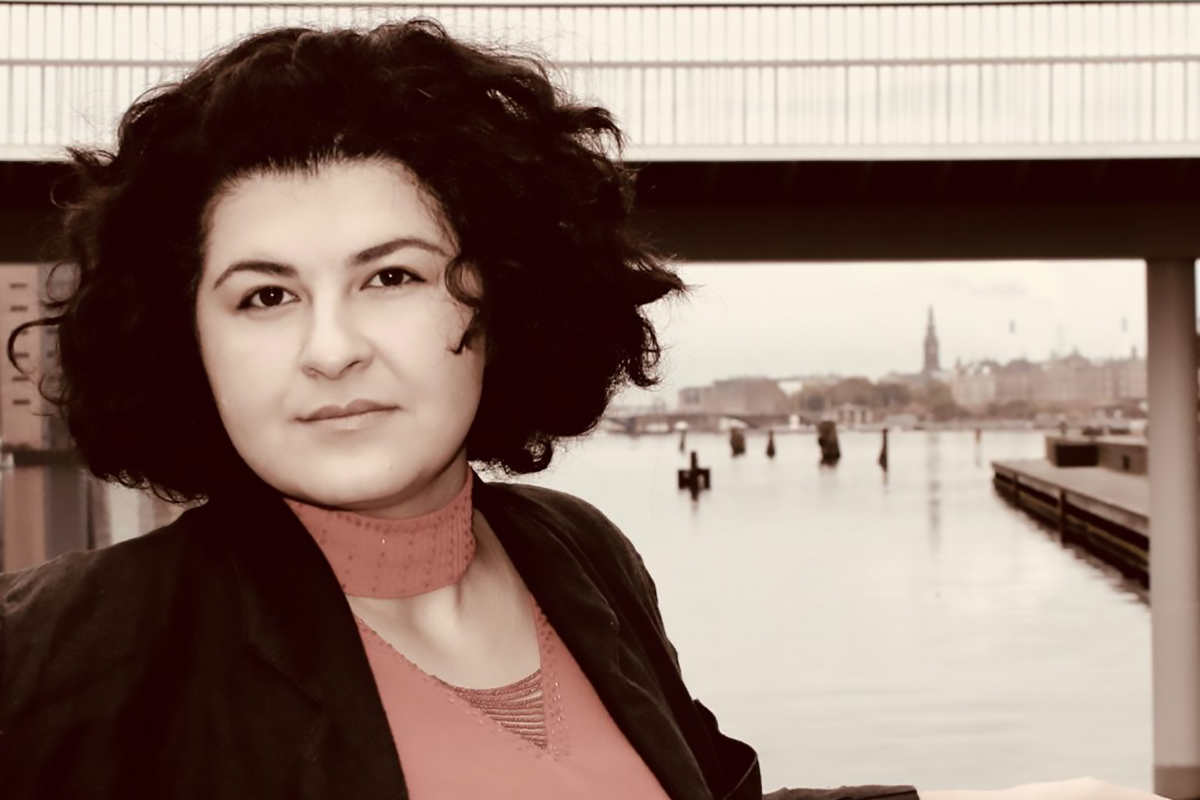
“This is a nightmare. We’re in shock,” Jaleh Tavakoli says. Last month, the 36-year-old Iranian-Danish critic of Islam received notification from Danish social services that she is no longer fit to care for the 8-year-old child she’s fostered since birth. Why? Tavakoli, a columnist and author, says it is because of her politically incorrect views on Islam. Social services maintains it is looking out for the best interest of a potentially vulnerable child. Tavakoli lives under security precautions, has been threatened on the streets of Copenhagen, and even survived a jihadist attack in 2015. As she prepares for the most difficult challenge of her life, Danish society must contend with the unprecedented challenge of where to draw the line when radical Islam intersects with free speech and children’s rights.
Denmark, a kingdom of just 5.7 million people, consistently ranks among the top countries in the world in quality-of-life indexes. The small Nordic state is envied for its strong universal healthcare system, high levels of trust and extremely generous welfare benefits. In 2018, it ranked third in the world for having the happiest citizens according to the UN World Happiness Report (it has topped the list three times since the report began in 2012).
Denmark has also settled hundreds of thousands of immigrants, primarily from the Middle East, Africa, and Eastern Europe. Today, around 10 percent of its population are immigrants—a rapid demographic change that only started in the last decades. And yet, beneath the façade of happiness surveys and the welfare state, Denmark has been unable to escape the social and political tensions now afflicting the body politic of nearly every country on the continent. Immigration, Islamism and integration are salient issues even in the happiest place on earth.
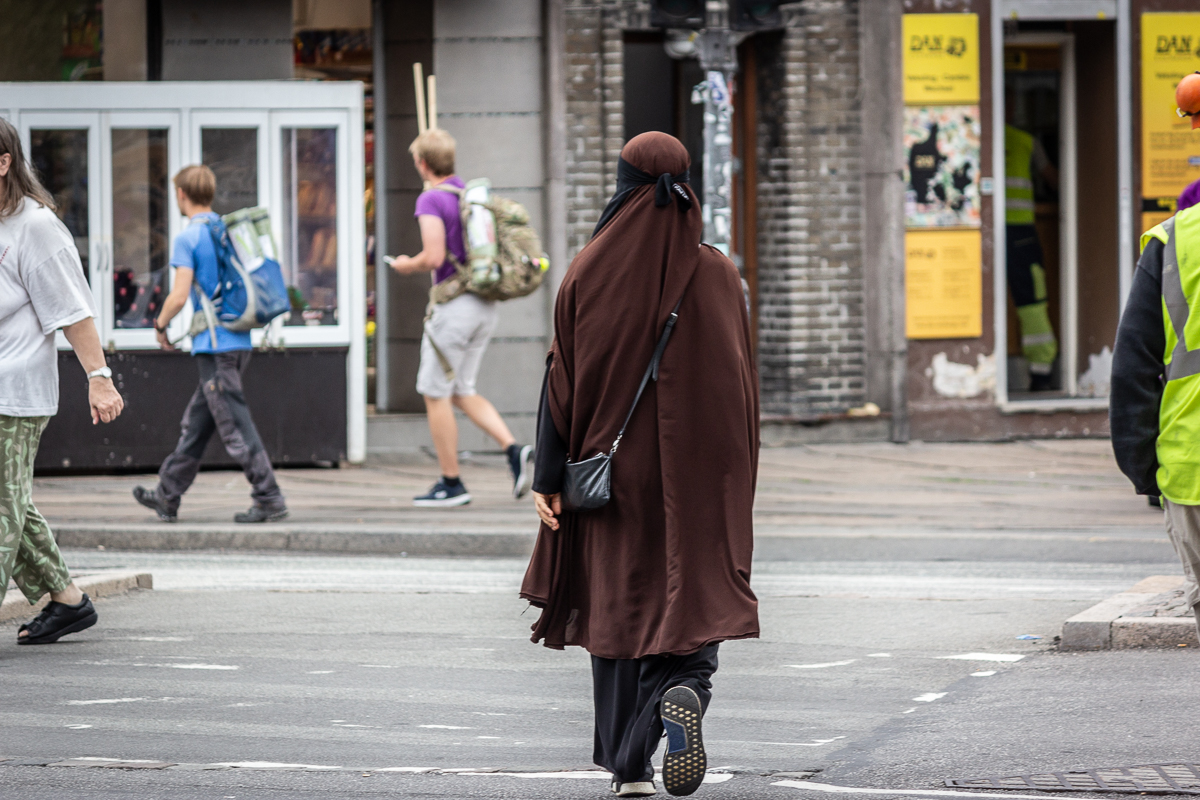
A woman wears a niqab in Copenhagen despite the nation-wide ban on face coverings in public. Photo: Andy Ngo
In this context, Tavakoli’s writings have found resonance—and resistance—for the past decade. “Islam, Muslim immigration and the death of Europe.” “Stop processing asylum applications in Denmark.” “Muslims are dividing families.” These are some of the columns written by her in Jyllands-Posten. The daily newspaper is well-known outside Denmark for publishing the satirical Mohammed cartoons in 2005 that sparked deadly protests around the world. For the Danes, this was their Salman Rushdie moment—an eye-opening event that raised questions in the mainstream about Islamic blasphemy in Europe. Since then, the threat from radical Islam has only increased. Intelligence officials report that the country’s main terror threat today comes from sympathizers of militant Islamism. They estimate that since 2012, around 150 Danish nationals have left the country to join jihadist movements, like the Islamic State, in the Middle East. Around a third have since returned.
Last December, Tavakoli shared a link on her personal Facebook page to a Reddit post that featured a video of the beheading of Danish tourist Louisa Vesterager Jespersen in Morocco by ISIS jihadists. Norwegian tourist Maren Ueland was also killed in the attack. On March 13, Tavakoli received a letter from Socialtilsyn Øst, a local social services agency.
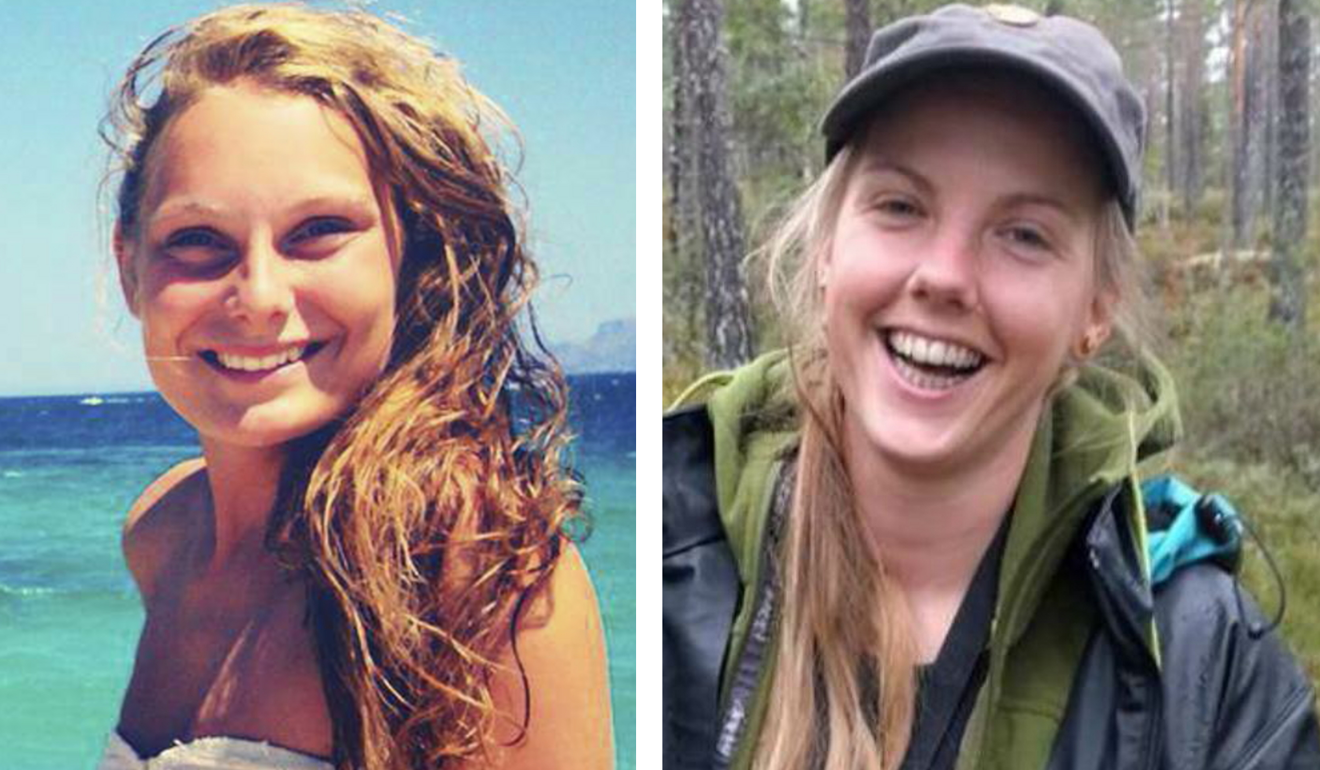
Louisa Vesterager Jespersen (left), 24, and Maren Ueland, 28, were killed in Morocco by Islamic State jihadists. Photos: Facebook
“The social welfare supervisory authority intends to revoke your authorization as a foster family,” announced the letter (in Danish). “The supervisory authority read in the press on Thursday, March 7, 2019 that you, Jaleh, had been charged for violating §264 d, act 2 in the criminal code, caused by you sharing a video on the social media Reddit.”
Tavakoli has not in fact been charged as reported in the press, but along with 13 others, is facing pending prosecution for sharing the video. They are accused of unlawfully violating the privacy of the victim and her family. Two individuals face additional charges for expressing support for the video’s content. Deputy Attorney General Jackob Berger Nielsen has told media this section of the penal law protects people from having unauthorized images of them disseminated online and is typically used to prosecute those who share revenge porn. There are no known cases of the law being applied to incidents involving terrorism videos. The maximum punishment Tavakoli faces is three years in prison.
Her family has since obtained the services of a lawyer but she says the uncertainty about her foster child’s future keeps her up at night. Still, she defends her decision to share the video as a matter of journalistic public interest.
A manager with Socialtilsyn Øst tells me that a parent’s political views do not factor into their evaluation process. Denmark, like its neighboring Nordic countries, has strong institutions and family laws to protect children. Across Scandinavia, children’s rights are generally a top priority in politics.
In the four-page letter from social services, they question whether Tavakoli is a suitable foster parent and list five reasons: her (pending) criminal charge, her sharing of the video, her activism’s effect on the child, her failure to act as a “digital role model” and the risk that her public exposure can be traced back to her family. Tavakoli stresses that she has never discussed or involved her children (she also has a biological infant) in her activism. “My child doesn’t even know what Islam is.” But the threats to her life have forced her to take a number of security precautions that she declined to specify. The letter also cites her for not alerting the agency to the police investigation—something she admits to overlooking. The letter concludes by saying its assessment is final but that she is eligible for a hearing.
Tavakoli, still shaken by the letter, believes social services did not take into account the context for how and why the video was shared. She says she was frustrated that Danish media initially used euphemisms to describe the attack. “The media said they were found ‘dead with signs of violence.’ That could mean anything.” To her, sharing a link to the post was comparable to media outlets publishing images of other victims killed by ISIS.
Tavakoli’s tug-and-pull attitude with the state is uncharacteristic for Danes in a society known for its consensus culture. However, Tavakoli comes from a politically dissident Iranian family. Born and raised after the 1979 Islamic Revolution, she’s deeply familiar with religious fundamentalism and political Islam. She showed me a photo of herself in Tehran in 1991 shortly before she emigrated. She’s pictured with a large group of young girls—all in white hijabs—at a takleef, or “coming of age” ceremony.
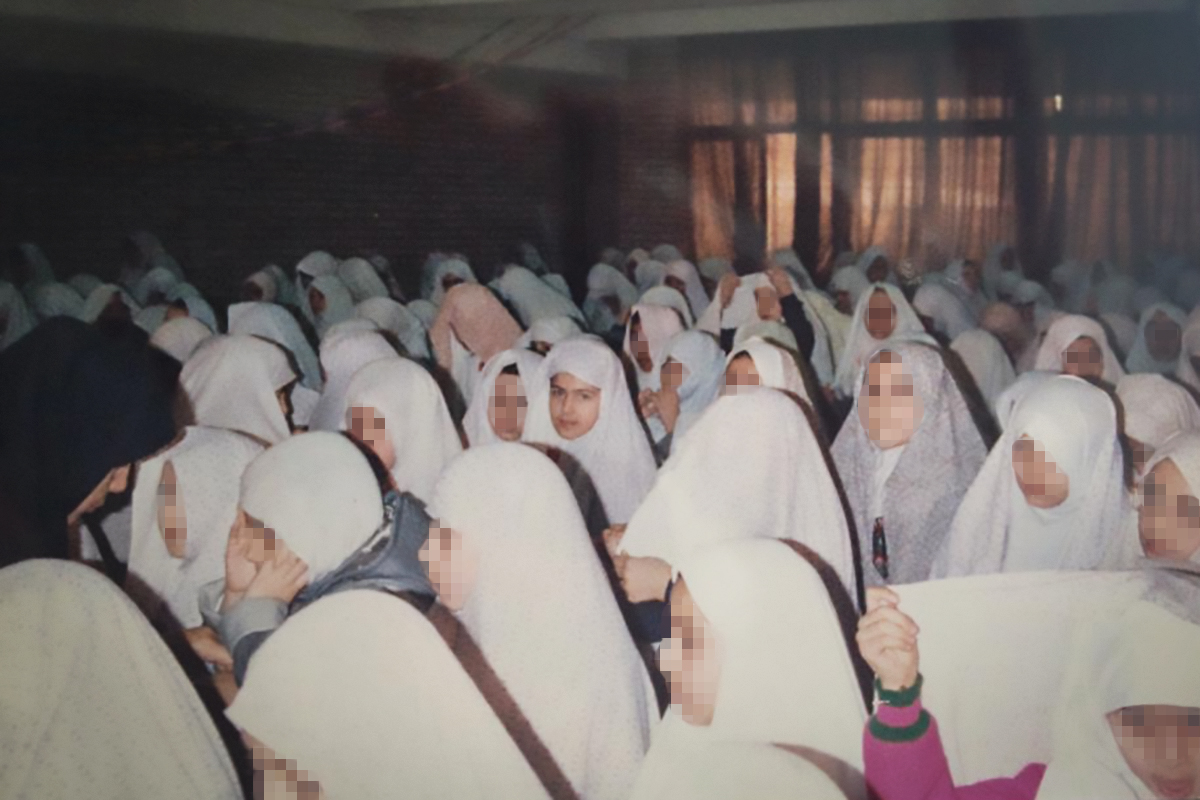
Jaleh Tavakoli (center) in Tehran in 1991 at a “coming of age” ceremony for nine-year-old girls
“When you turn nine as a girl in Islam, you are a woman. I had to pretend to be Muslim in school.” She says the euphemisms Danes used to describe the jihadist attack in Morocco were emblematic of their fear of discussing radical Islam with any substance.

Jaleh Tavakoli at age 6 or 7 in Iran
In addition to her criticisms of Islam and Muslim practices, she also speaks out against the Iranian regime—a move that can carry real risks. Last September, the entire island of Zealand, where Copenhagen is located, was shut down without warning in a massive police operation when authorities received a tip that Iran was allegedly plotting a terror attack against activists on Danish soil. Bridges to the island were closed, and trains and boats were not allowed to leave or enter, sparking hours of chaos. Though Tavakoli wasn’t a target in this alleged plot, she has narrowly escaped death in the recent past.
In February 2015, she survived a jihadist attack by Omar Abdel Hamid El-Hussein, 22, a Danish national of Palestinian and Jordanian background. She helped organize the Copenhagen free speech event that featured controversial Swedish artist Lars Vilks. Vilks is on the hit list of numerous Jihadist groups, including al Qaeda and al Shabab, due to a sketch he drew of Mohammad as a dog in 2007. He has survived several assassination attempts by Muslim extremists living in both Europe and the U.S. Despite the Charlie Hebdo and Jewish supermarket Islamist attacks happening just weeks earlier in Paris, organizers decided to not cancel the event. The then-French ambassador was invited to give the keynote speech as a tribute.
“We had planned a meeting and though we were very nervous, we all agreed upon this,” recalls lead organizer and author Helle Brix. They thought they were well-prepared—armed Danish and Swedish officers provided security at the Krudttønden Cultural Center on the day of the event—but they were wrong. El-Hussein arrived outside the venue with a stolen rifle, shooting nearly 30 rounds through the building’s windows. An attendee was killed outside. El-Hussein then fled in a stolen vehicle. “The police and bodyguards had hand weapons; the terrorist had an automatic weapon,” says Brix. “Had the police not fired back, he would have entered the room.”
El-Hussein went on to kill a Jewish volunteer at Copenhagen’s Great Synagogue the next morning. He fled again and was eventually killed in a shootout with police in Nørrebro, the heavily immigrant district of Copenhagen he was from. Last week, riots erupted in the area after fringe politician and provocateur Rasmus Paludan staged a protest where he threw a Quran on the ground. Some violent rioters shouted “Allahu akbar” while setting fires on the streets.
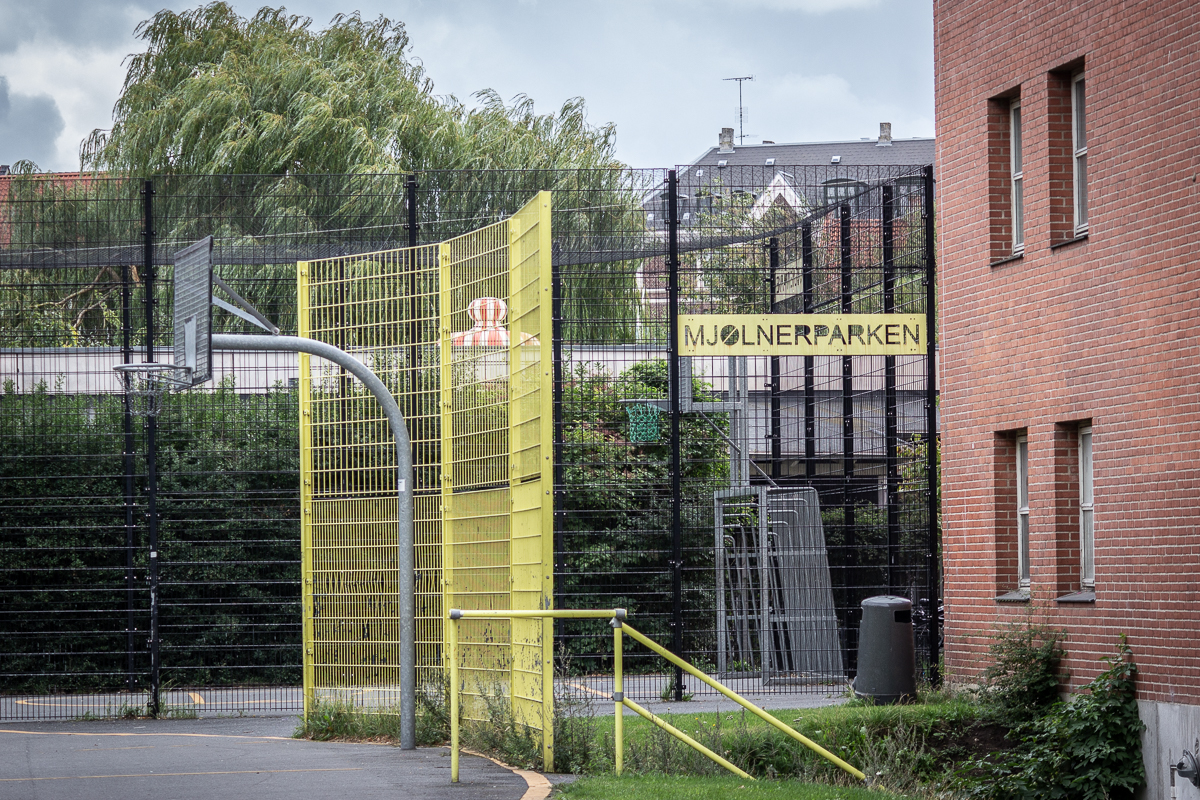
Terrorist Omar Abdel Hamid El-Hussein, 22, grew up in the Mjølnerparken housing project in Nørrebro, a heavily immigrant district in Copenhagen. Photo: Andy Ngo
Tavakoli tells me her resolve to speak and write about Islamic extremism only strengthened after the shootings even though she admits to having some fears for her own safety. “I could see that the Danish public didn’t really understand what had happened. Politicians would say, ‘Why do you need to provoke?’”
Since February 2015 a number of terror plots have been foiled in Denmark by intelligence services. In September that year, a Palestinian man attacked a police officer with a knife while shouting “Allahu akbar” at an asylum center north of Copenhagen. In 2017, a teenage female Muslim convert was convicted of planning to blow up two schools—one of which is a Jewish school. And last December, a Syrian man was charged with plotting a terror attack in Copenhagen using knives and explosives. In spite of this reality, Islam and Islamic extremism still remain sensitive topics for mainstream discourse. In the aftermath of El-Hussein’s terror rampage, Danes actually laid flowers at a memorial site where he was killed. Over 600 people from the Muslim community attended his funeral.
“At some point you have to have enough respect for yourself that you see the crime for what it is instead of the color of the criminal,” says Tavakoli. “They think or hope Islamic extremism is going away. It’s not.” She fears that attempts to silence political discussions on radical Islam will only move them to more hardline or militant elements of society. At the upcoming general election, The New Right, an anti-Islam populist party, stands a chance to enter parliament for the first time.
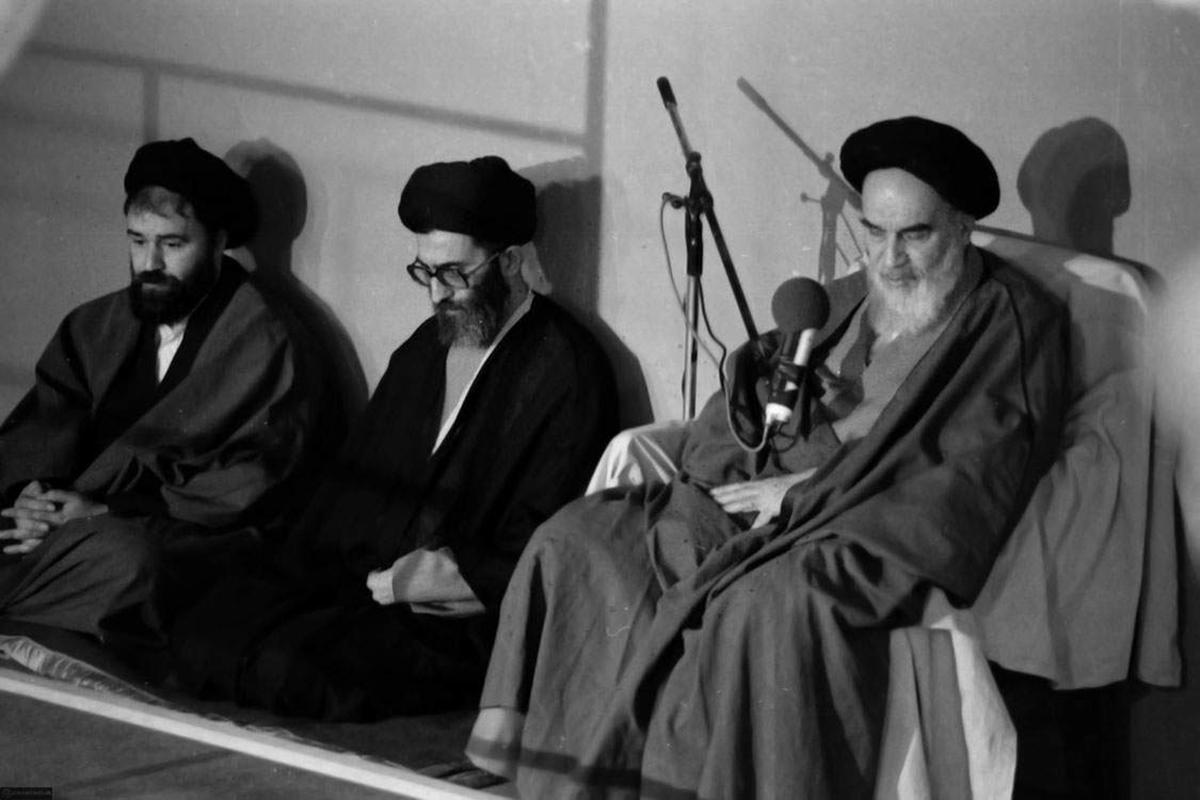
Journalist friends have urged Jaleh Tavakoli to remain quiet if she manages to overcome this ordeal with her family intact. She refuses. “Where is their sense of justice? If I’m going to be quiet then I could just go back to Iran and live. We will fight for adoption now more than ever.” And indeed her outspokenness—which placed her in this predicament—may ultimately prove to be part of the solution after all. After drawing attention to her ordeal through media engagement, she has earned the vocal support of politicians and even the former chair of Denmark’s National Council for Children. Social services have since informed her that they are reviewing their initial decision.
Andy Ngo is an editor at Quillette. Follow him on Twitter @MrAndyNgo






